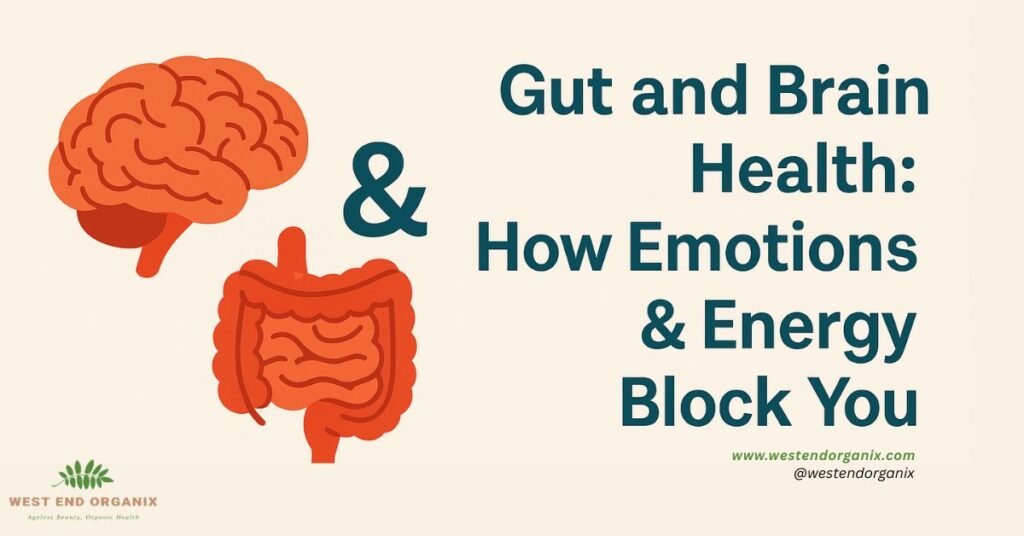For years, he lived with a tight chest, sleepless nights, and a mind that never shut off.
Doctors said it was anxiety.
Therapists offered breathing techniques.
He tried everything—meditation, journaling, walks in nature.
But nothing really worked.

The One Connection He Never Questioned
He’d been divorced for many years. But somehow, she never truly left.
She still called about the kids, the old house, her problems—like nothing had changed. She leaned on him for emotional support he never signed up for. And every time her name flashed on his phone, that sinking feeling returned.
He thought being available was the kind thing to do.
But the truth?
Every interaction drained him.
Every call re-opened old wounds.
This wasn’t co-parenting. This was emotional tethering.
And she was the toxic ex keeping his nervous system in a constant state of alarm.
Toxic Ex, Anxious Mind—And a Body in Crisis
This wasn’t just emotional pain. It was biological damage.
Chronic stress from his ex’s manipulation had kept his amygdala—the brain’s fear center—on high alert for years.
Every text, every guilt-trip, every lie triggered the fight-or-flight response, flooding his body with cortisol. His system never shut off.
That constant state of survival? It wore him down.
- His sleep cycles collapsed.
- His immune system weakened.
- His digestion was erratic.
- He lived in hypervigilance.
And here’s what holistic therapists know:
The gallbladder energetically stores anger and resentment.
For years, he’d been swallowing both.

When he cut ties, his nervous system finally relaxed.
His doctor was stunned by the improvement. But for him, it wasn’t a miracle—it was the result of removing the source of harm.
The Day He Cut the Cord
One day, he made the hardest—and healthiest—choice of his life:
- No more guilt replies
- No more late-night rescues
- No more pretending peace while living in chaos
He didn’t scream. He didn’t fight.
He just stopped giving her access to his peace.
And then, something wild happened:
He started sleeping.
His chest pain eased.
His blood pressure improved.
He could breathe again—for the first time in decades.
It Wasn’t Just Anxiety. It Was Proximity to a Toxic Ex.
You can’t heal in the same environment that made you sick.
No amount of inner work can fix the damage caused by staying too close to someone who once broke you.
If You’re Still Drained, Ask Yourself This:
- Who still has access to your energy?
- Are you managing emotions that aren’t yours?
- Are you carrying guilt that was never meant to be yours?
Because sometimes, it’s not you. It’s who you’re still tethered to.
When the Toxic Ex Can’t Control You Anymore… She Tries to Control the Narrative
One painful truth many don’t talk about?
When a toxic ex loses control over you, they often try to control how others see you—especially the people you love.

In this case, she didn’t just stop at guilt trips and phone calls.
She started attacking the new woman in his life.
She spread rumors. Slandered her.
Told their now-grown kids distorted stories.
“Your dad abandoned us.”
“His new wife is brainwashing him.”
“He doesn’t care about family anymore.”
It was never about truth.
It was about control.
Weaponizing the Kids
Worse still, she used their children—now adults—as flying monkeys.
She trained them to question his character, ignore his calls, or outright cut contact.
He wasn’t just healing from anxiety anymore—he was facing parental alienation, reputation damage, and grief over children he once raised with love.
But here’s the thing:
He stayed calm.
He held his truth.
And over time, truth has a way of outlasting manipulation.
What Are Flying Monkeys in Narcissistic Abuse?
“Flying monkeys” are people manipulated by a toxic ex / narcissist to carry out their emotional abuse—often unknowingly.
They may:
- Spread lies on the narcissist’s behalf
- Pressure the target into compliance
- Shame or guilt-trip the person who set boundaries
- Act as spies to monitor the target’s new life
In relationships with a toxic ex, flying monkeys are often:
- Adult children
- Mutual friends
- Family members
- Co-workers or neighbors
If your ex is turning people against you, understand:
It’s not your fault. It’s a tactic.
What matters is protecting your energy, your truth, and your healing.
Final Truth:
He didn’t need more therapy.
He needed distance.
He didn’t need to fix himself—he needed to stop managing someone else’s chaos.
Once he left his toxic ex behind, he realized:
He was never broken. He was just holding onto the person who broke him.
Frequently Asked Questions
👉 What is a toxic ex?
A toxic ex is someone who continues to manipulate, guilt-trip, or emotionally drain you long after the breakup. They might use guilt, fear, or obligation to stay connected, making you feel responsible for their emotions. True healing starts when you set firm boundaries or go completely no contact.
👉 How do I emotionally detach from a toxic ex?
Emotional detachment means prioritizing your peace over their manipulation.
- Limit or cut off communication.
- Stop engaging in guilt-based conversations.
- Focus on therapy, journaling, and somatic healing like breathwork or movement.
- Know that detachment is an act of self-preservation, not cruelty.
👉 What are flying monkeys in narcissistic abuse?
Flying monkeys are people manipulated by a narcissist or toxic ex to attack, shame, or spy on the person trying to leave. They could be adult children, family members, or mutual friends used to deliver messages, spread lies, or make you feel like the bad guy—even when you’re protecting your peace.
👉 How does toxic stress affect the brain and body?
Toxic stress activates the amygdala, the part of your brain responsible for fear and survival.
Over time, this constant fight-or-flight state floods your body with cortisol, leading to:
- Insomnia
- Anxiety & panic
- High blood pressure
- Digestive issues
- Weakened immune function
Toxic people don’t just hurt your mind—they harm your entire nervous system.
👉 What emotions are stored in the gallbladder?
According to holistic health and traditional Chinese medicine, the gallbladder stores repressed anger, resentment, and unexpressed frustration. If you’re constantly “swallowing” your emotions in a toxic relationship, your body will eventually speak—through gallbladder pain, indigestion, or chronic tension.FAQ: What Is a Toxic Ex?
A toxic ex is someone who continues to negatively impact your emotional, mental, or even physical well-being after the relationship has ended. This person may:
- Guilt-trip you into staying connected
- Create drama or confusion through manipulation
- Make you feel responsible for their happiness or stability
- Undermine your progress or healing
- Use children, shared assets, or old emotions to stay “hooked in”
Even if the relationship ended years ago, the emotional tie can remain active—and damaging. Cutting contact or setting strong boundaries is often essential for full recovery.
FAQ: How Do I Emotionally Detach from a Toxic Ex?
Emotionally detaching from a toxic ex isn’t about becoming cold or bitter—it’s about protecting your peace. Here’s how to start:
- Recognize the patterns – Is the connection helping you heal or keeping you stuck?
- Set non-negotiable boundaries – You don’t owe them your energy or access.
- Limit or end communication – Use no-contact methods
- Journal your emotions – Express what you feel without censoring.
- Seek therapy – Especially for trauma recovery, CPTSD, or narcissistic abuse.
- Replace the connection – Focus on relationships that uplift and support you.
Remember: Detaching isn’t cruel—it’s necessary. You deserve a life that isn’t dictated by someone else’s dysfunction.







